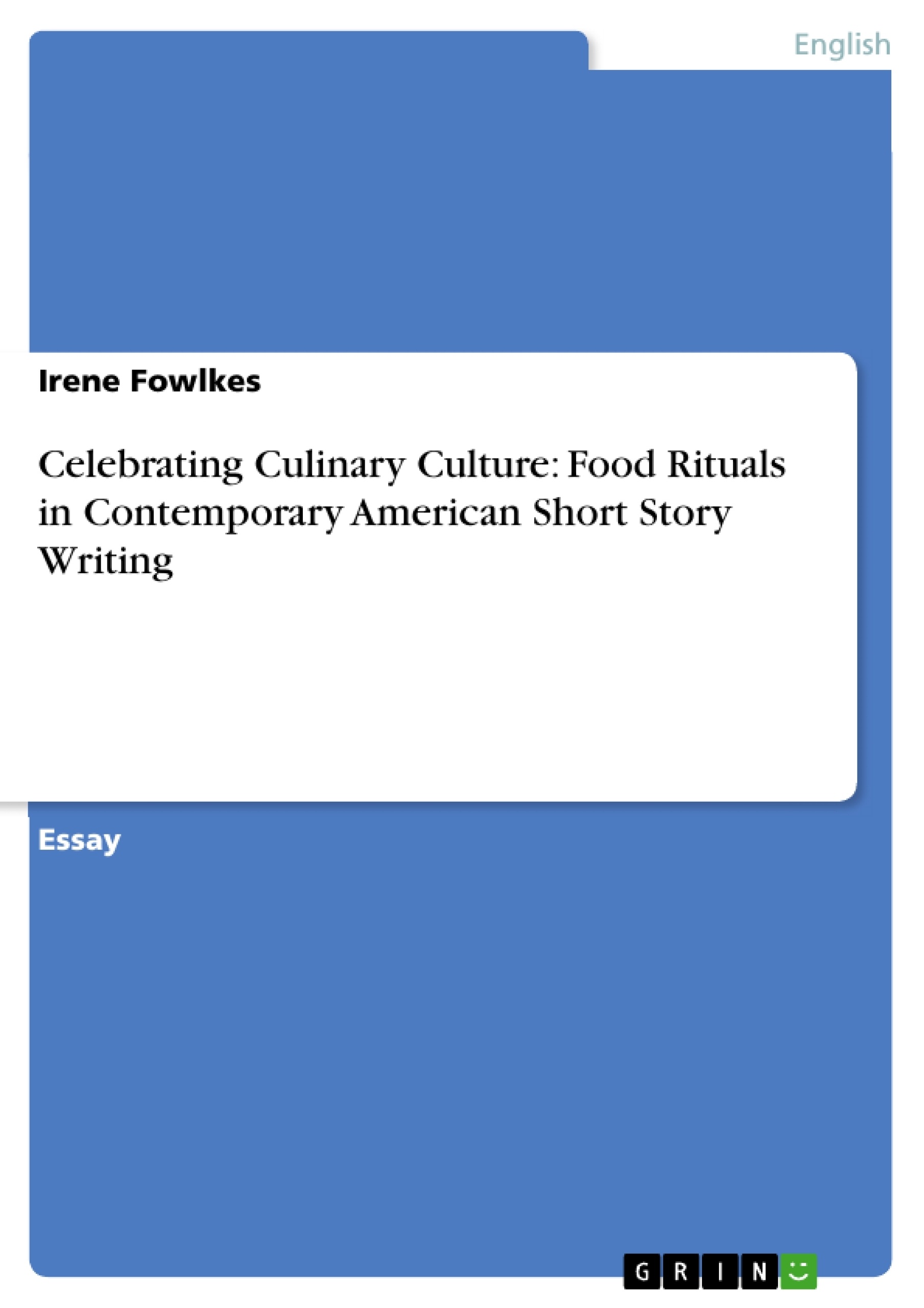The short stories in Brooklyn author Jhumpa Lahiri’s anthology Interpreter of Maladies all share a plotline revolving around immigration, conforming to a typical theme in the contemporary American short story. In this context, food is used as a means to express the crossing of boundaries, whether they are political, religious or psychological. Rituals, beliefs, customs and morals attached to the preparation, consumption and celebration of meals by characters in the stories depict the negotiation of a hyphenated identity as it pertains to gender, sexuality, family, friendship, war and love. Lahiri’s stories tell the reader about the Indian - American experience in particular, but her narratives transcend national concerns, because the food archetype is universal. In her fictional accounts, Lahiri works out her characters’ efforts to maintain their Indian tradition while struggling to assimilate to the United States and the ambivalence that is involved in the process. This is achieved by a literal feed into socio-cultural gaps creating a great deal of irony and humor. Lahiri appeals to the reader’s senses through the detailed description of taste, smell, visual or texture of food and the atmosphere surrounding it. A vivid idea of a component of the characters’ heritage is evoked as a result in the reader, so he / she develops a concrete awareness for certain culturally based idiosyncracies and differences likely to clash with American mores.
Inhaltsverzeichnis (Table of Contents)
- A Temporary Matter
Zielsetzung und Themenschwerpunkte (Objectives and Key Themes)
This paper analyzes the role of food in Jhumpa Lahiri's short stories, specifically focusing on how food rituals illuminate the complex interactions of characters with themselves, others, and their place in the world. The analysis uses select stories from Interpreter of Maladies to explore these themes.
- The use of food as a symbol of cultural identity and assimilation.
- The breakdown of communication and social structures as reflected in food rituals.
- Food as a means of expressing emotions and navigating grief and loss.
- The connection between food, sex, and reproduction in cultural context.
- The role of food in maintaining or disrupting family and community ties.
Zusammenfassung der Kapitel (Chapter Summaries)
A Temporary Matter
In Lahiri's "A Temporary Matter," the story revolves around Shoba and Shukumar, a couple grieving the loss of their stillborn child. Their grief manifests in a breakdown of communication and shared rituals, particularly concerning their meals. Initially, they eat separately, reflecting their emotional distance. Shoba's meticulous preparation of food, reflecting her cultural heritage and family values, contrasts sharply with Shukumar's neglect of food and routine. A temporary power outage forces them to eat together, briefly reviving memories of happier times and highlighting the significance of shared meals in their relationship. The chapter explores how the disruption of food rituals mirrors the disintegration of their relationship and the struggle to cope with profound loss. The chapter ends before any major reconciliation or resolution.
Schlüsselwörter (Keywords)
Food rituals, cultural identity, assimilation, grief, loss, communication, family, community, Jhumpa Lahiri, Interpreter of Maladies, Indian-American culture, food symbolism.
Frequently Asked Questions
What is the central theme of Jhumpa Lahiri's "Interpreter of Maladies"?
The central themes revolve around immigration, cultural identity, and the struggle of Indian-Americans to assimilate into US society while maintaining their heritage.
How is food used as a symbol in Lahiri's stories?
Food serves as a bridge between cultures and a means to express political, religious, or psychological boundaries and emotional states.
What does the story "A Temporary Matter" illustrate about rituals?
It shows how the breakdown of shared food rituals mirrors the disintegration of a marriage and the couple's inability to communicate through grief.
Why are Lahiri's narratives considered universal?
While focusing on the Indian-American experience, her use of the food archetype transcends national concerns as food is a universal human experience.
What role does sensory description play in the anthology?
Detailed descriptions of taste, smell, and visual textures evoke a vivid sense of heritage and cultural idiosyncrasies for the reader.
- Quote paper
- Irene Fowlkes (Author), 2007, Celebrating Culinary Culture: Food Rituals in Contemporary American Short Story Writing, Munich, GRIN Verlag, https://www.grin.com/document/187338



